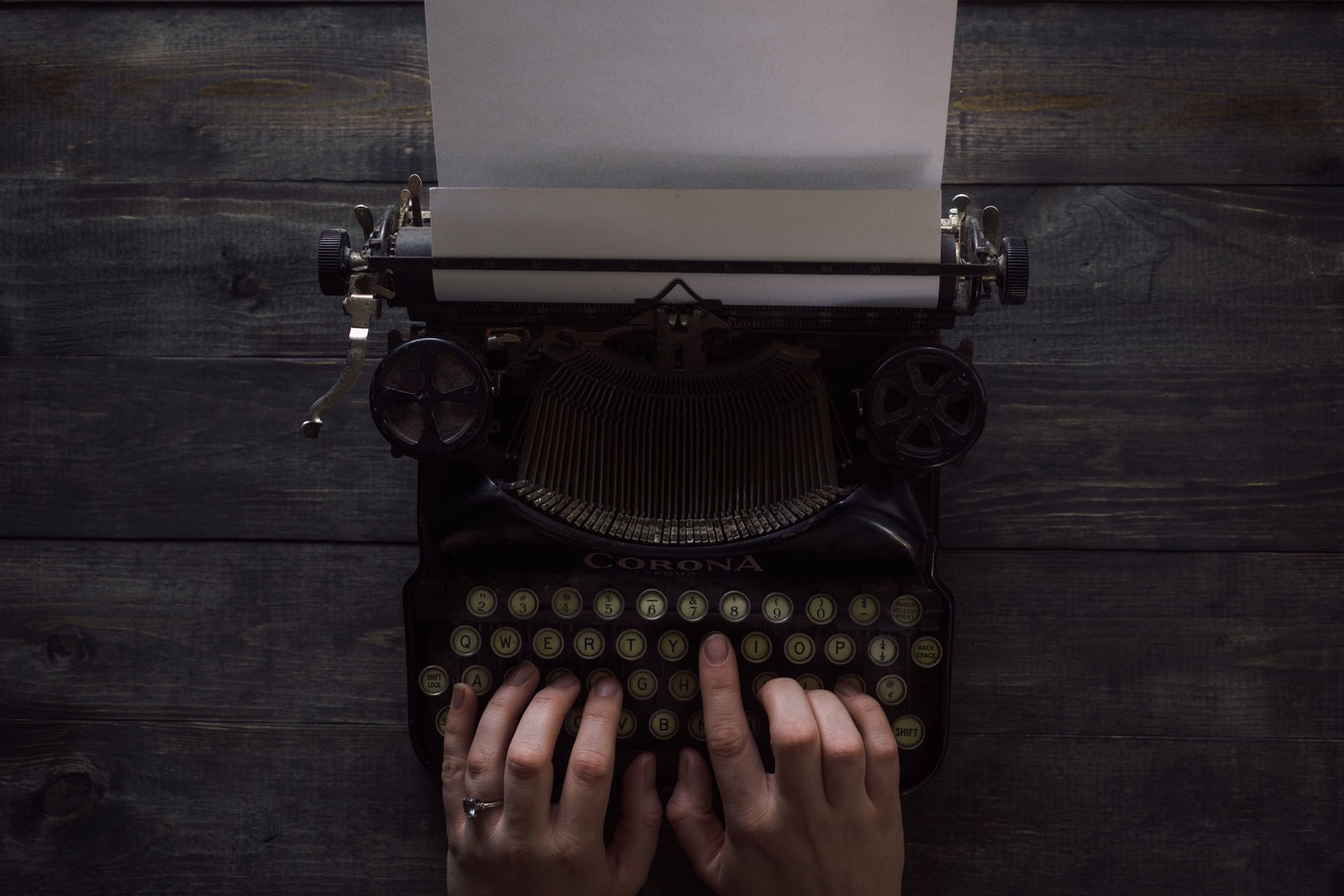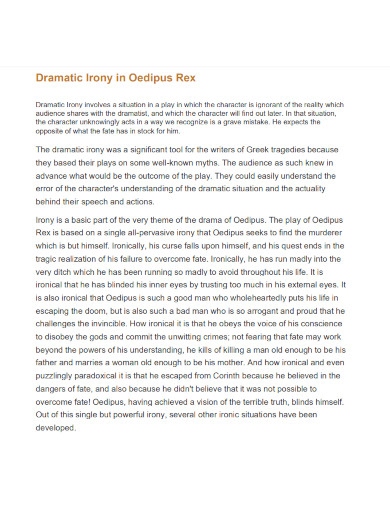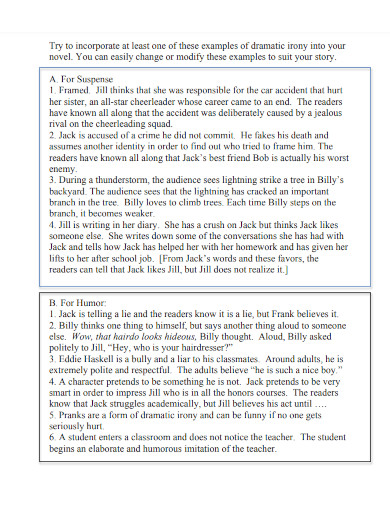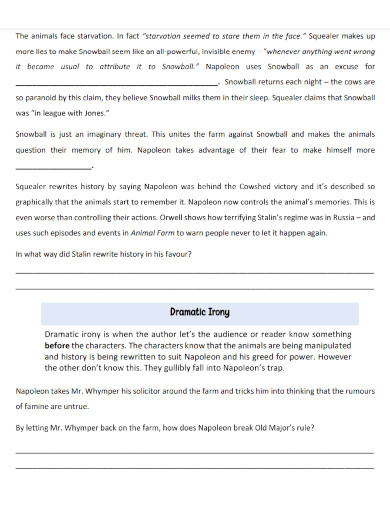4 Dramatic Irony Examples
Writers are always in the search for methods that could keep their audience engrossed. It’s not hard to see why, considering how irony has the ability to create something humorous from an otherwise tragic event. But dramatic irony in literature and everyday life is never made obvious unless it is goes through a literary analysis. While feigned ignorance may seem irritating to witness, it’s clear that this is what makes the entertainment industry thrive.
1. Dramatic Irony in Oedipus Rex
2. Dramatic Irony Ideas for Students
3. Dramatic Irony Example
What Is Dramatic Irony?
Dramatic irony is a stylistic literary device or a literary analysis tool used in movies, theaters, screen plays, and sometimes in elements of poetry , where the audience are more aware of the themes, situations, conflicts, and resolutions that happened and are about to occur compared to the characters involved.
How to Write Dramatic Irony
Dramatic irony is a powerful literary device that creates tension and suspense in a story by revealing information to the audience that the characters are unaware of. To write dramatic irony effectively, you need to carefully plan your plot and dialogue to ensure that the audience is aware of important information that the characters are not.
Step 1: Setting up the Correct Situations
Setting up the correct situations. Setting up the situations will give your audiences an idea or a better hand over what the characters may not expect. This also gives the audience an upper hand over the characters as it helps audience know the motives or information about plot.
Step 2: Set a Dialogue for Your Characters
Create dialogue or actions that make the audience aware of the information. You can do this through a character’s inner thoughts, through hints dropped in conversation, or through an omniscient narrator. Make sure that the characters remain unaware of the information. This will create tension and suspense as the audience waits for the characters to discover what they do not know.
Step 3: Revealing Character Traits
When writers use dramatic irony, it helps by revealing characters and their character traits. It also helps by driving the plot to move forward, and to add some deeper meaning to the story they are writing. Dramatic irony creates a sense of foreboding, to show the audience that these characters may not be able to figure out their mistakes until the very end.
Step 4: It Helps with the Consistency
Dramatic irony will only work well if it is kept consistent through out the whole story. Avoid introducing newer information too late within the plot as it will only make the story even more confusing. Which will not only make your characters confuse, but it will also make your audiences confused.
FAQs
What is the difference between dramatic irony and other forms of irony?
Irony is a broad concept to discuss, which is why it must be categorized into three forms. Apart from dramatic irony, situational irony and verbal irony are also heavily used in literature and everyday language. Verbal irony from the word itself, verbal irony may be communicated through the tone of the speaker’s voice. As for situational irony, it is defined when a given outcome of an event or action turns out differently than what was expected.
Why do writers use dramatic irony?
Dramatic irony adds color and texture to stories by building a sense of anticipation that keeps audience members engaged. It applies misunderstanding to add entertainment to the plot as well. Many writers have come to learn that this form of irony plays a significant role in strengthening the connection between readers or viewers and why characters matter in essay writing.
How can dramatic irony help with the stories?
Dramatic irony helps in a way that it helps shows deeper meaning in stories, it helps create tension, and it also helps explain to audiences the character traits, how the story will go, and showcases how characters would react to situations presented to them.
By allowing an audience to become an important part of the work experience, they develop an emotional attachment towards every character portrayed. This helps add suspense and humor to every plot. But there are instances when dramatic irony isn’t as explicit as it is in the source material. This usually takes place when a famous novel or book proposal is turned into a movie or play, as those who have already read the material know what to expect in the film, and vice versa. You may also see examples of symbolism in poetry.





